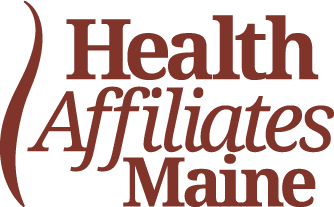Private practice offers clinicians a unique set of opportunities and challenges. Among these challenges is the potential for isolation — a common experience for many practitioners working solo. Collaboration and avoiding isolation are so important to the sustained success of your business. Not only do they enhance professional growth and knowledge sharing, but they also support mental and emotional health, preventing feelings of loneliness and burnout.
Isolation can slowly creep up, often going unnoticed until it starts to impact our professional satisfaction and personal well-being. However, by implementing strategies aimed at fostering connections and collaboration, clinicians can cultivate a thriving practice and plug into a supportive professional community.
Strategies to Reduce Isolation in Private Practice
1. Establish a Referral Network: Building relationships with other healthcare providers, such as psychiatrists, case managers, and other specialists, can be incredibly beneficial. These connections not only provide a referral base but also open the door to collaborative care for clients with complex needs, enhancing outcomes and interdisciplinary understanding.
2. Join Professional Associations: Professional associations offer more than credentialing and an impressive LinkedIn profile; they provide a community of peers facing similar challenges and successes. These organizations often host conferences, workshops, and seminars that not only serve as a means to continue education but also as opportunities to network and build lasting professional relationships.
3. Participate in Peer Consultation Groups: Peer consultation groups offer a platform to discuss cases (while respecting confidentiality), share insights, and receive feedback in a supportive environment. These groups can be an invaluable resource for emotional support, professional development, and combating isolation. Health Affiliates Maine offers optional peer consultation groups for this purpose.
4. Leverage Technology for Networking: Platforms like LinkedIn, professional forums, and specialized social networks for behavioral health professionals can be powerful tools for building connections, sharing experiences, and seeking advice.
5. Create a Collaborative Workspace: Is your office space contributing to feelings of isolation? Consider shaking up your physical environment. For example, explore the possibility of a shared workspace or a co-working arrangement with other behavioral health professionals. This can foster a sense of community, make referrals easier, and enrich your life with diverse perspectives.
6. Engage in Continuous Learning: Attend workshops, seminars, and training sessions beyond your specialty. This not only broadens your professional skills but also introduces you to clinicians with different expertise, potentially leading to new collaborative relationships. We host periodic trainings throughout the year (free or discounted for affiliates!), as well as an annual Consortium to facilitate such connections. These are great opportunities to find and form relationships with peers.
7. Prioritize Self-Care: Focusing on your own mental and emotional well-being is crucial. Regular self-care practices can mitigate the effects of isolation, helping maintain a balanced perspective on both personal and professional life.
Embracing Community through Health Affiliates Maine
For clinicians in private practice, navigating isolation requires intentional effort towards building a supportive professional community. Health Affiliates Maine understands this challenge intimately and works to facilitate connection among a network of clinicians through in-person and virtual trainings, online platforms, monthly consultation groups, mentorship for new affiliates, and individual peer consultation as needed.
While the journey of private practice can sometimes feel solitary, it doesn’t have to be an isolating experience. Through proactive engagement with the wider professional community, utilizing resources like those offered by Health Affiliates Maine, and adopting strategies to build connections, clinicians can thrive both personally and professionally. Let’s remember, in the heart of private practice lies the potential for a rich, collaborative, and fulfilling professional life.




